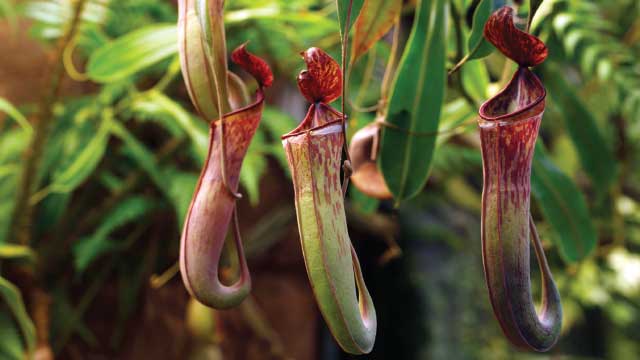 GRACEFUL DEATH TRAP: Pitcher plants may yield enzymes that can help people with celiac disease digest gluten.© ISTOCK.COM/AYIMAGES
GRACEFUL DEATH TRAP: Pitcher plants may yield enzymes that can help people with celiac disease digest gluten.© ISTOCK.COM/AYIMAGES
The pitcher plant Nepenthes x ventrata is gorgeous and popular with horticulturists, but it’s deadly for the insects that fall into the trap for which it is named. Yet the enzymes in the digestive fluid that fills the carnivorous plants’ vase-shape modified leaves might one day provide a service to the animal kingdom, by enabling human celiac disease patients to properly digest the grain protein gluten.
University of Calgary protein chemist David Schriemer didn’t set out to identify a celiac disease treatment, even though his 15-year-old niece suffers from the disorder. Instead, he was searching for an alternative to the stomach enzyme pepsin that would be more effective in the low-pH cleavage steps of his proteomics experiments. He turned to plants, looking for enzymes far ...
















